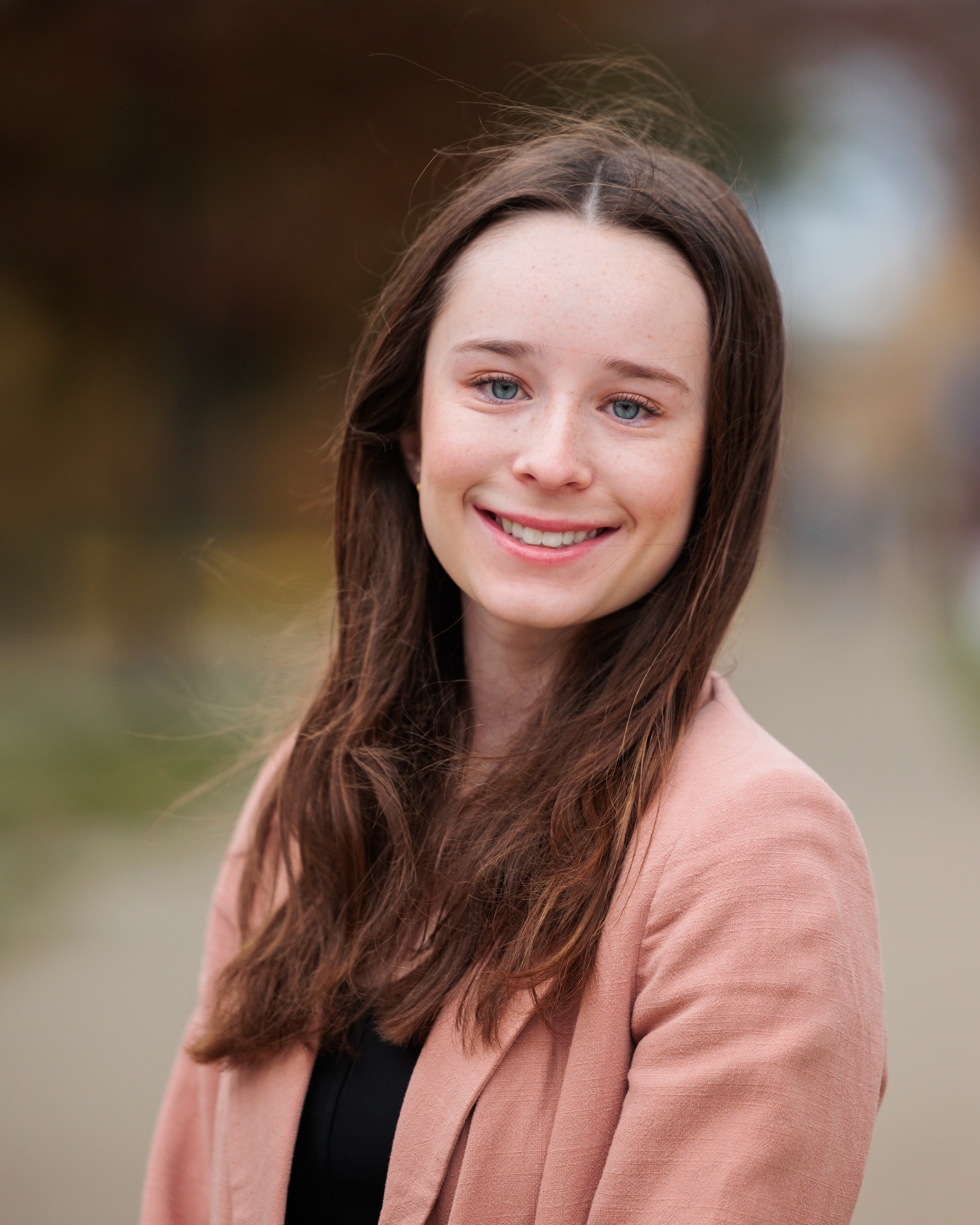By Richard LeComte

LEXINGTON, Ky. -- To get a National Institutes of Health research internship, college students need to look through a website and find an investigator to take them on. University of Kentucky junior Lilly Bauer did just that — she spent the summer of 2023 working in the lab of Carole Bewley in Maryland.
"I've always heard of the National Institutes of Health, and I know it’s a very. big deal in the science community," said Bauer, a junior biology major in the University of Kentucky College of Arts and Sciences. “The cool thing I liked about the NIH internship is that you reach out to the principal investigators yourself. You’re on your own to get accepted. I am really interested in microbiology, so I looked under microbiology and just was going through all of the people that they have listed to find research that was interesting to me, and I reached out to them.”
Bauer, who’s also in the Lewis Honors College and is a Lunsford Scholar, shows what’s wildly possible when UK students take the initiative. Bewley's lab performs interdisciplinary research aimed at the discovery of “biologically active natural products" that can fight viruses. Specifically, Bauer spent the summer working with a natural product from a sponge to boost antibiotics.
"The lab researchers study a natural product from the ocean that comes from sponges," Bauer said. "We were seeing if that natural product could help antibiotics work better to kill bacteria. We looked at two different types of bacteria just to see if there were any differences. And we tested a whole bunch of different antibiotics to see if the products made any differences in how the antibiotics worked.”
Antibiotics tend to lose effectiveness when used frequently because of evolutionary pressure: The bacteria that survive become immune to treatment. So it’s vital that labs like the one Bauer worked in for improving antibiotic effectiveness.
"It’s getting really hard to discover new antibiotics because bacteria already have resistance mechanisms," Bauer said. “So we're trying to come up with different ways to treat infections that don’t involve having to discover a brand-new antibiotic.”
In addition to lab work, Bauer honed her communication skills through events at the institute for interns.
“Throughout the internship, I would do presentations at our lab meetings, or our building would have a lecture series and they had they let the interns participate," she said. "I gave a presentation to a bunch of people in the building, and I learned how to make really effective PowerPoints and how to present data in ways that make sense and are concise.”
As a member of the Lunsford Scholars program, Bauer receives a $5,000 stipend for an extracurricular high-impact experience, she used that for housing — not cheap — in Tenleytown and commuted to the NIH on the Washington, D.C., metro. The competitive, need-based Lunsford program provides high-impact learning experiences for students wanting to pursue good citizenship and public service.
"Lilly is an exemplary student leader in the Lunsford Scholars Program for both her NIH research experience and her extracurricular participation,” said Michelle Sizemore, associate professor of English and director of the Lunsford program in the College. “I've been impressed at how conscientious she is about involving newer students and bringing them into our professional development conversations."
As part of that Lunsford high-impact learning, Bauer has begun working with Sarah D’Orazio, associate professor in the Department of Microbiology, Immunology and Molecular Genetics in the UK College of Medicine. In D’Orazio’s lab, Bauer is researching how the bacteria Listeria monocytogenes invades our body to infect cells. Specifically, Bauer is looking at a gene that encodes a subset of proteins that are important for invasion and is testing several different cell types to determine which cell type L. monocytogenes invades in.
“ The scholarship helped me to be able to go for that internship and inspired me to look out for other types of research opportunities,” Bauer said. "We also do events at least once or twice a semester, and those events are great for connecting with UK faculty and learning how to be a good applicant for graduate school and for the future.”
Bauer grew up in Louisville and graduated from Sacred Heart Academy. She said she’s found science fascinating from middle school onward.
“My middle school science teacher had a big influence on me,” she said. “I went to a very small Catholic grade school, and he taught sixth-, seventh- and eighth-grade science. He has everyone do competitive science fair projects in middle school, and that is what made me fall in love with science, and microbiology in particular, because that's the kind of projects I did.”
She’s also pursuing minors in Spanish, a language she’s been learning since grade school, and microbiology. She’s also a member of the Gamma Phi Beta sorority as well as other campus endeavors.
“I'm also part of the running club," she said. “I’ve run cross country ever since grade school, so I wanted to continue it here, and I've made a lot of good friends from that. I also really love the UK Arboretum. It's so nice to run in there, and it's just off campus, which is so convenient.”
Research reported in this publication was supported by the National Institute of Allergy and Infectious Diseases of the National Institutes of Health under Award Number R01AI167953. The content is solely the responsibility of the authors and does not necessarily represent the official views of the National Institutes of Health.

